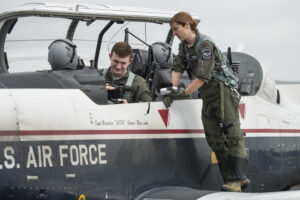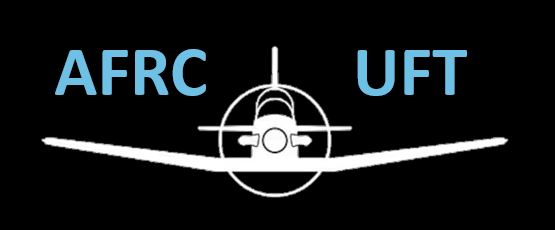7. Civil Path to Wings
 7.1. Overview. The Civil Path to Wings (CPW) program allows qualified pilot candidates the opportunity to receive credit for their civilian flight training and experience, potentially allowing them to receive credit towards a portion or all of UPT. This program is only for pilots who will fly Mobility Air Forces (MAF), Special Operations Forces (SOF) or Command, Control, and Intelligence, Surveillance and Reconnaissance (C2ISR) aircraft—it is not for fighter or bomber pilot candidates. s.
7.1. Overview. The Civil Path to Wings (CPW) program allows qualified pilot candidates the opportunity to receive credit for their civilian flight training and experience, potentially allowing them to receive credit towards a portion or all of UPT. This program is only for pilots who will fly Mobility Air Forces (MAF), Special Operations Forces (SOF) or Command, Control, and Intelligence, Surveillance and Reconnaissance (C2ISR) aircraft—it is not for fighter or bomber pilot candidates. s.
7.2. Eligibility requirements for CPW.
7.2.1. Sponsorship by an AFR flying unit (see Section 3)
7.2.2. Meet standard Air Force officer and pilot medical and physical requirements (see Section 2)
7.2.3. A current PCSM score
7.2.4. Minimum commercial certificate with MEI
7.2.5. Minimum 500 hours total fixed-wing/manned flight time (or an additional 250 hrs after Comm/MEI)
7.2.6. Minimum ~100 hrs in the last year prior to validation
7.2.7. Multi-engine time under IFR in the National Air Space is preferred
7.3. Application. If you meet the basic eligibility requirements listed above, you may be selected for AFRC CPW. To apply, follow the guidance set forth below.
7.3.1. Submit an application to an AFRC UFT Board. CPW applicants apply to the same board as non-CPW applicants, and the board selects eligible CPW candidates for the program. For information on how to submit an application, see Section 4. If selected for CPW, you will be scheduled for an Air Force Initial Flying Class 1 (IFC1) flight physical. Upon certification of your IFC1, you will be scheduled for a CPW class where a CPW Competency Validation (CV).
7.3.2. Complete the CPW CV at Randolph AFB, TX. This consists of a robust assessment of general flying and instrument knowledge. Applicants should be prepared for a 75-question closed book knowledge test, a 100 question tabletop question & answer session and emergency procedure walkthrough as well as a 1.5 hour simulator assessment. The written exam portion of the Validation is FAR/AIM focused with heavy emphasis on IFR and national airspace info.
7.3.3. Based on your performance in the CPW CV, Air Education & Training Command (AETC) will make a determination of your qualification level. You will be found to be either UNQUALIFIED, WELL QUALIFIED, or EXTREMELY WELL QUALIFIED.
7.3.4. If WELL QUALIFIED, you will be scheduled for T-1 training and then proceed directly to the Formal Training Unit (FTU) for your sponsoring unit’s aircraft.
7.3.5. If EXTREMELY WELL QUALIFIED, you will be scheduled for the Air Force Fundamentals (AFF) course or T-1 training, depending on availability, and then proceed directly to the Formal Training Unit (FTU) for your sponsoring unit’s aircraft.

